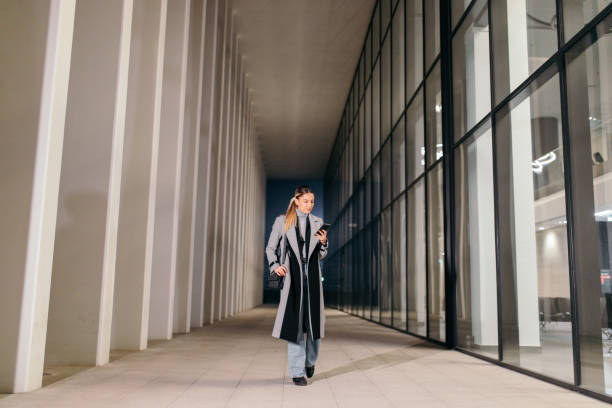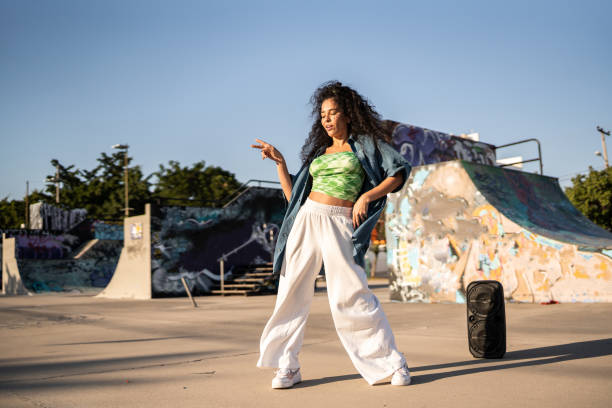Fashion goes beyond mere clothing; it is a form of self-expression that has a profound influence on an individual’s confidence. The garments we choose to adorn ourselves with can significantly impact our mood, how we perceive ourselves, and how we are perceived by others. From the colors we select to the fit and style of our clothes, every aspect of our dress can bolster our self-assurance and empower us to present our best selves to the world. In this article, we’ll explore the intricate relationship between fashion and confidence, and how one can harness the power of personal style to feel more self-assured and poised in everyday life.
The Psychological Impact of Fashion on Confidence
Few domains interact as intimately with our self-esteem as fashion. The clothes we wear can be a powerful psychological tool that helps us to construct our identity and navigate social situations with greater assurance.
- Dress for Success: Wearing an outfit that is tailored, clean, and appropriate for a given occasion can instill a sense of preparedness and competence.
- The Color Psychology: Choosing colors that we associate with positive attributes, like red for power or blue for tranquility, can affect our mood and perception.
- Cultural Connotations: Adhering to or rebelling against cultural dress norms can make a statement and influence how we feel about our place within society.
- Enclothed Cognition: There is a concept in fashion psychology known as “enclothed cognition,” which suggests the clothing we wear can alter our cognitive processes and affect our performance on tasks.
Fashion as a Form of Self-Expression
One’s wardrobe is an extension of their personality. When people are able to express themselves through their attire, they often find a deeper sense of individuality and self-worth.
- Every accessory, garment, and even the way clothes are worn sends a message about who we are and who we aspire to be.
- By experimenting with styles, textures, and combinations, individuals can discover what resonates with their inner selves, strengthening their understanding and confidence in their identity.
- Nurturing a personal style allows people to step out into the world with an emboldened sense of presence, garnering respect and admiration from peers, which further fuels self-confidence.
Body Image and Clothing Choices
Fashion plays a crucial role in shaping one’s body image, which in turn affects confidence. Clothing has the power to enhance our best features and disguise those we might feel self-conscious about.
- Knowing how to dress for one’s body type can drastically improve how individuals perceive their own bodies, leading them to feel more confident.
- Techniques like layering, accessorizing, and tailored fitting can highlight personal strengths or help individuals conform to beauty standards they admire, providing a confidence boost.
- The right outfit might not change the body underneath, but it can change the attitude towards it, encouraging a more loving and accepting personal narrative.

Social Perceptions and Fashion
In the realm of social interactions, the clothes we wear often speak before we do. First impressions can be heavily swayed by our choice of clothing, impacting our confidence in social settings.
- A smart, well-put-together outfit can command respect and authority, making professional interactions more favorable.
- Casual and approachable styles can make us seem more relatable, aiding in forming personal connections.
- There’s also a phenomenon of “fashion currency” wherein being up-to-date with trends can increase social capital among peers, especially in youth culture and creative industries.
The Transformative Power of Fashion
Fashion has the ability to transform an individual from the inside out, imbuing them with confidence and a sense of preparedness. The transformative power of fashion is evident in various situations:
- Special events where formal attire creates a feeling of elegance and sophistication, lifting one’s confidence.
- Professional attire that makes an individual feel more competent and ready to tackle work challenges.
- Everyday wear that aligns with personal style, giving a consistent boost of confidence through self-expression and comfort.
Conclusion
To conclude, fashion is not just about trends or vanity—it is an influential factor in building and maintaining our confidence. Through the clothes we wear, we communicate who we are and how we feel about ourselves. Fashion provides opportunities to express individuality, improve body image, maneuver social perceptions, and undergo personal transformation. By understanding and leveraging the power of fashion, we can step out into the world with elevated confidence and the assurance that we are presenting our best selves.
FAQs
How can fashion increase confidence in a professional setting?
Professionally tailored outfits that reflect competence and attention to detail can make individuals feel more self-assured, leading to better performance and stronger first impressions.
Does following fashion trends always improve confidence?
Not necessarily. While keeping up with trends can make some feel more connected and relevant, others gain confidence by developing a unique personal style that may not strictly adhere to current trends.
Can the price of clothing affect confidence?
While expensive clothing might impart a sense of status to some, it is the fit, style, and personal sentiment attached to clothing that are the true determinants of confidence, regardless of the price tag.
Is it possible for someone to be confident without being fashionable?
Absolutely. Confidence can come from many sources, including accomplishments, talents, and values. Fashion is just one of the tools that can enhance confidence, but it’s not a prerequisite.
How does color psychology work in relation to fashion and confidence?
Colors can have different meanings and can evoke different emotions. For example, red is often associated with power and energy, which might make someone wearing it feel more confident. Conversely, blue might evoke calmness and stability.
